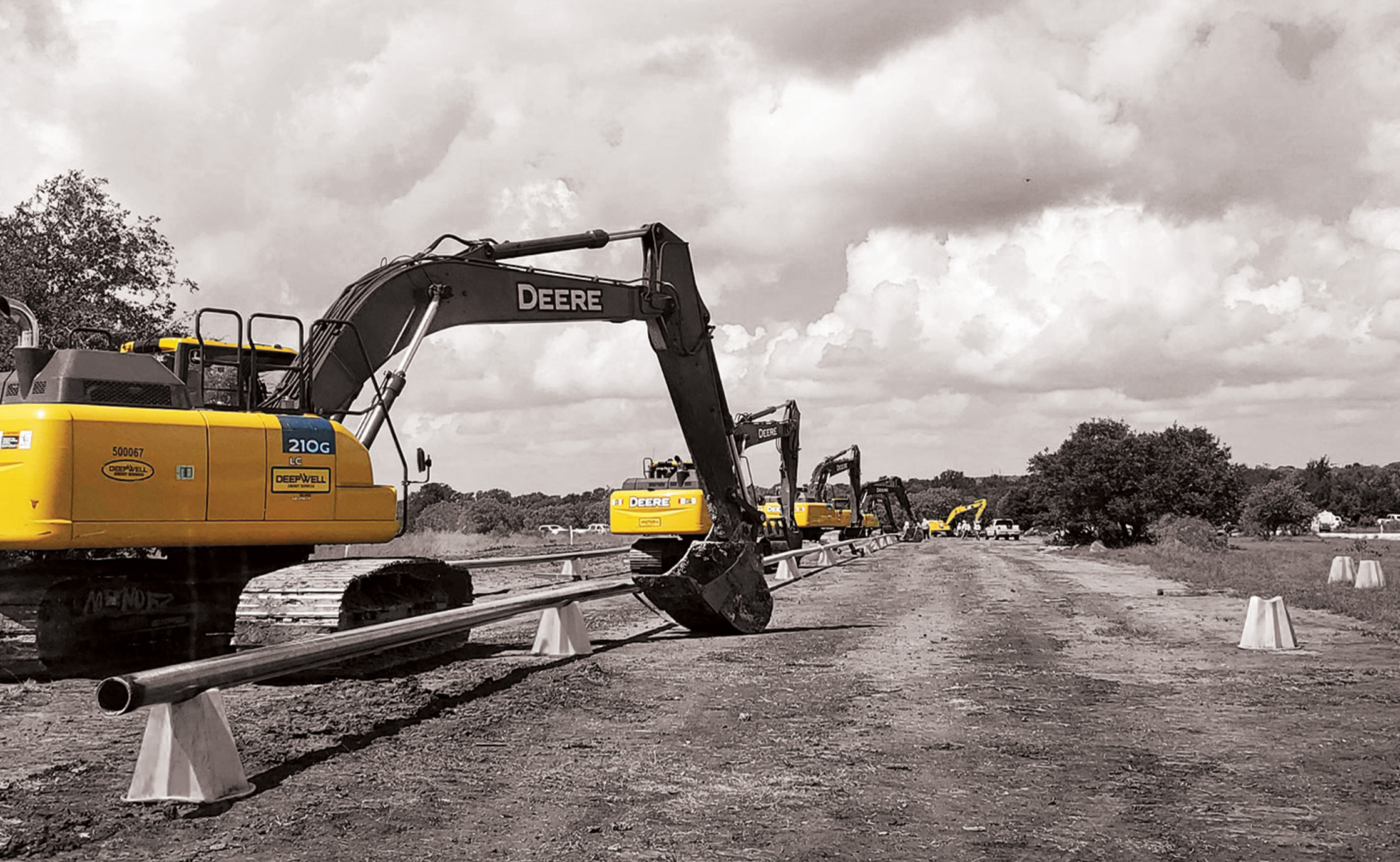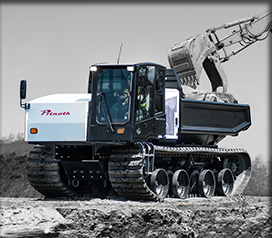The benefits of working with Superior Oilfield Rentals in oil and gas projects
A Comprehensive Guide to the Various Sorts Of Oil Field Equipment and Pipeline Equipment Available
The oil and gas market relies greatly on specialized equipment for efficient extraction and transportation. Numerous kinds of machinery, from piercing rigs to tank, play vital roles in this intricate procedure. Each item of tools offers distinct features that add to overall functional success. Understanding these parts is necessary for any individual included in the industry. As the sector progresses, so too do the technologies that support it. What developments are on the horizon?

Drilling Rigs: The Foundation of Oil Expedition
Drilling rigs serve as the crucial machinery in the domain name of oil expedition, enabling business to accessibility hydrocarbon gets buried deep underneath the Planet's surface. These rigs can be found in numerous types, including land rigs, offshore rigs, and mobile systems, each designed to run in particular settings. Equipped with sophisticated modern technology, piercing rigs can penetrate geological formations with precision, making certain efficient resource extraction. The architectural integrity and functional capacities of these rigs are vital, as they have to withstand extreme conditions and substantial stress. The selection of an exploration gear influences the total project expense and timeline, making it a crucial factor to consider for oil business seeking to enhance their exploration efforts and make the most of efficiency in their operations.
Pumps: Important for Fluid Movement
In the oil removal procedure, the function of pumps is considerable, assisting in the movement of fluids throughout numerous phases of production. Pumps are vital for carrying petroleum, water, and other fluids from below ground reservoirs to the surface and afterwards with pipelines to refineries. They are available in numerous kinds, including centrifugal, favorable variation, and submersible pumps, each offering details functions based on the liquid attributes and operational needs. Centrifugal pumps are frequently used for their performance in high-flow applications, while favorable displacement pumps succeed in managing viscous liquids. The choice of pump influences general efficiency, functional safety, and upkeep costs. Correct choice and upkeep of pumps are important for optimizing production and decreasing downtime in oil area operations.
Shutoffs: Controlling Flow and Pressure

Valves play an essential function in taking care of the circulation and pressure of fluids within oil fields and pipelines. Different sorts of shutoffs offer distinct applications, each made to meet specific functions fundamental for effective operation - Superior Rentals reviews. Recognizing the features and usages of these shutoffs is vital for enhancing system performance and security
Kinds of Valves
Vital elements in oil field operations, valves play an important function in controlling the circulation and pressure of fluids within pipes and tools. Numerous sorts of valves are used to satisfy the diverse demands of oil and gas manufacturing. Usual types include gate shutoffs, which give a straight-line circulation and very little pressure decline; world shutoffs, understood for their throttling capabilities; and round shutoffs, acknowledged for their quick on/off control. In addition, check shutoffs avoid backflow, while butterfly shutoffs use a lightweight solution for managing circulation. Each valve kind is created with particular materials and configurations to withstand the rough conditions frequently located in oil areas, guaranteeing integrity and effectiveness in operations. Recognizing these types is critical for reliable system administration.
Valve Applications and Features
While different types of valves offer distinct functions, their primary applications rotate around controlling circulation and pressure within oil and gas systems. Valves such as gateway, globe, and round valves control fluid motion, ensuring peak efficiency and safety. Entrance shutoffs are typically made use of for on/off control, offering marginal flow resistance. Globe shutoffs, on the other hand, offer specific flow guideline, making them suitable for throttling applications. Round valves are favored for their fast procedure and tight securing capacities. Additionally, stress safety valve are important for preventing system overpressure, protecting tools integrity. In general, the proper selection and application of valves improve functional performance, guaranteeing the trustworthy transportation of oil and gas through pipelines and processing facilities.
Compressors: Enhancing Gas Transportation
Compressors play a crucial role in the effective transportation of gas, ensuring that it relocates smoothly via pipelines over fars away. These tools raise the stress of all-natural gas, allowing it to conquer friction and elevation modifications within the pipeline system. In addition, compressors promote the harmonizing of supply and need, suiting changes in intake and manufacturing prices. Different kinds of compressors are used in the market, consisting of centrifugal, reciprocating, and rotating screw compressors, each offering unique advantages based on the operational requirements. Regular maintenance of these compressors is important to optimize performance and decrease downtime, inevitably adding to a trustworthy gas transport network. Their vital function highlights the significance of compressors in the overall oil and gas infrastructure.
Storage Tanks: Safe and Reliable Liquid Administration
Efficient transportation of gas relies upon numerous support group, one of which is the proper monitoring of tank. These tanks play an essential duty in safely containing liquids, making sure that operational efficiency is kept while lessening environmental threats. Built from durable products, they are developed to withstand high stress and destructive components. Appropriately sized and strategically situated, storage containers assist in the smooth flow of all-natural gas and other fluids, preventing traffic jams in supply chains. Regular upkeep and monitoring are imperative to find leaks or architectural issues, promoting safety and security and compliance with governing standards. Eventually, the effective administration of tank is important for the overall stability and integrity of the oil and gas industry's fluid handling systems.
Pipeline Equipments: Infrastructure for Transportation
Pipeline systems act as the backbone of the oil and gas market, assisting in the efficient transportation of hydrocarbons over huge ranges. These systems include different parts, consisting of pipes, valves, pumps, and compressors, all thoroughly made to guarantee seamless circulation. The products made use of in pipeline construction, typically steel or high-density polyethylene, are picked for durability and resistance to corrosion. Pipeline networks can extend across land and water, connecting manufacturing sites to refineries and distribution. look at here now In addition, progressed technology makes it possible for real-time monitoring of flow rates and stress degrees, boosting operational efficiency. The strategic positioning of these pipes minimizes environmental impact while optimizing resource availability, thus playing an important duty in meeting energy needs globally.
Security Equipment: Guaranteeing Employee and Environmental Management
The procedure of pipeline systems, while important for energy transportation, additionally offers considerable security challenges for workers and the atmosphere. Security tools plays a considerable duty in mitigating these dangers. Individual protective equipment (PPE) such as headgears, gloves, and non-slip footwear safeguards employees from physical risks. In addition, gas detection systems keep track of for leaks, making certain that hazardous materials do not posture a hazard to employees or the bordering community. Emergency situation closure systems are important for quickly stopping operations throughout a dilemma, preventing possible calamities. Spill containment products, consisting of absorbents and barriers, are essential for minimizing ecological influence. Overall, buying all-inclusive security devices is critical for maintaining functional integrity and securing both workers and the environment in the oil and gas sector.

Often Asked Concerns
Exactly how Do I Pick the Right Oil Field Equipment for My Job?
Choosing the best oil field devices involves examining job requirements, click to read budget plan restraints, and operational requirements. Take into consideration variables such as equipment dependability, compatibility with existing systems, and the distributor's track record to ensure peak efficiency and security.
What Are the Maintenance Requirements for Oil Field Equipment?
Maintenance needs for oil area tools consist of normal assessments, lubrication, and prompt repair services. Operators should additionally stick to supplier guidelines, display performance metrics, and guarantee conformity with safety and security policies to improve longevity and effectiveness.

How Can I Make Certain Compliance With Environmental Laws?
To ensure compliance with ecological laws, business must carry out normal audits, execute best techniques, spend in training, keep proper documents, and remain upgraded on legislation (Superior rentals squeeze tools). Collaboration with ecological agencies can likewise enhance adherence to guidelines
What Is the Ordinary Life-span of Pipeline Equipment?
The typical life-span of pipeline tools generally varies from 20 to 50 years, depending upon aspects such as material quality, ecological conditions, and upkeep practices. Regular evaluations can greatly affect long life and functional performance.
How Do I Safely Transport Oil Field Equipment to Remote Locations?
Transporting oil field equipment to remote areas calls for careful preparation, including path assessment, safeguarding permits, utilizing appropriate vehicles, and ensuring safety and security procedures are followed. Correct training and interaction amongst crews are important for look here effective transportation.